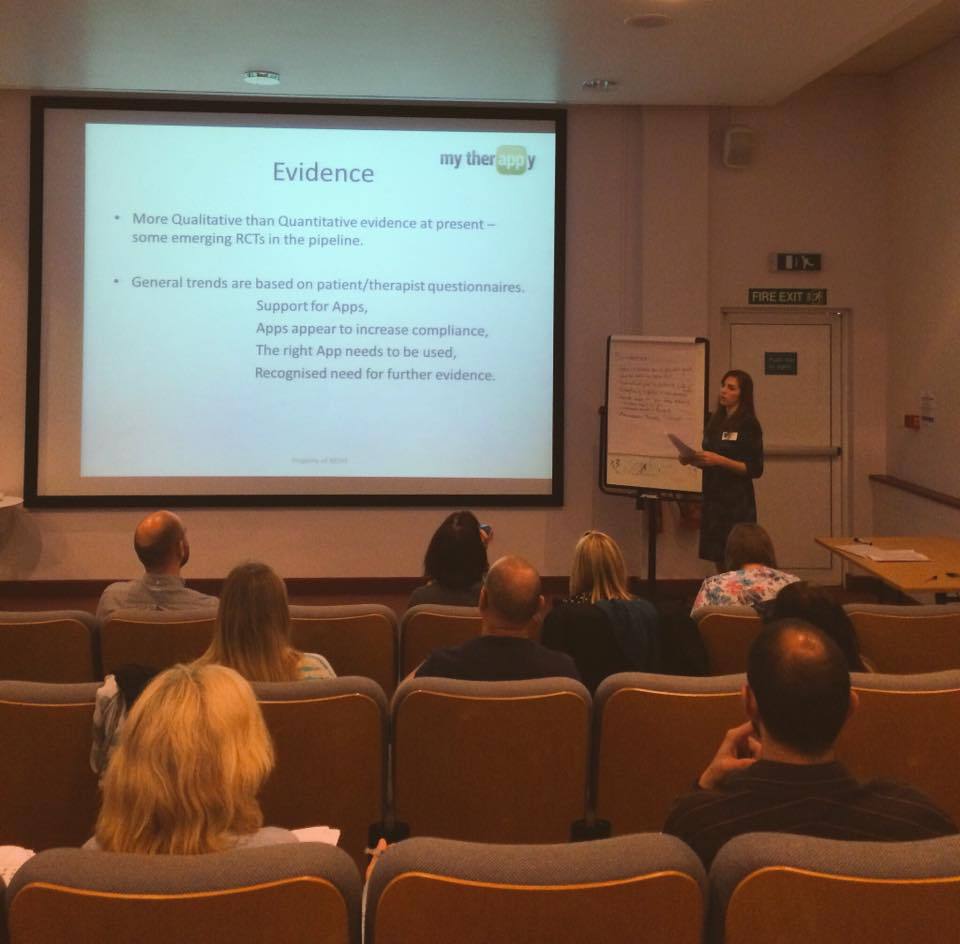Evidence Base for the clinical use of apps

Apps appear to increase compliance the right app needs to be used there is a recognised need for further evidence.
There are a number of useful policies and standards. They can inform your practice and can be used to assist applications for digital services:
NHS Digital - Digital Inclusion guide for health and social care (2017)
https://digital.nhs.uk/about-nhs-digital/our-work/...
NHS Digital - Clinical Risk Management Standards (2020)
https://digital.nhs.uk/services/clinical-safety/cl...
Kings Fund - The digital revolution: Eight Technologies that will change health and care (2016)
https://www.kingsfund.org.uk/publications/eight-te...
The good things foundation - UK Digital Nation (2019)
https://www.goodthingsfoundation.org/sites/default...
Topol Review - Preparing the healthcare workforce to deliver the digital future (2019)
Research Studies - RCTs
Literature review - Stroke
Title: iPad use in stroke neuro rehab
Authors: Khalid Ameer and Khalid Ali
Summary: The incorporation of tablet computers to conventional rehabilitation post stroke has the potential to maintain patients interest, improve clinical outcomes and reduce abandonment of tasks.
https://www.ncbi.nlm.nih.gov/pmc/articles/PMC63711...
Aphasia app
LanguageTherappy 4-in-1. Aphasia App.
Title: Improved Language in Chronic Aphasia After Self-Delivered iPad Speech Therapy
Published in: Neuropsychol Rehabilitation.Summary: Self-delivered speech therapy provides an opportunity for individualised dosage as a complement to the speech-therapy regime in the long-term rehabilitation pathway. Few apps for speech therapy have been subject to clinical trials, especially on a self-delivered platform. In a crossover design study, the Comprehensive Aphasia Test (CAT) and Cookie Theft Picture Description (CTPD) were used to measure untrained improvement in a group of chronic expressive aphasic patients after using a speech therapy app. A pilot study (n = 3) and crossover design (n = 7) comparing the therapy app with a non-language mind-game were conducted. Patients self-selected their training on the app, with a recommended use of 20 minutes per day. There was significant post-therapy improvement on the CAT and CTPD but no significant improvement after the mind-game intervention, suggesting there were language-specific effects following use of the therapy app. Improvements on the CTPD, a functional measurement of speech, suggest that a therapy app can produce practical, important changes in speech. The improvements post-therapy were not due to type of language category trained or amount of training on the app, but an inverse relationship with severity at baseline and post-therapy improvement was shown.
This study suggests that self-delivered therapy via an app is beneficial for chronic expressive aphasia.
https://ichgcp.net/es/clinical-trials-registry/NCT...
Dexteria -Upper limb app
https://www.researchgate.net/publication/259621292...
Rehab Let - Upper limb app
https://trialsjournal.biomedcentral.com/articles/1...
Brain training
Medisafe- Medication management app
Title: Association of a Smartphone Application With Medication Adherence and Blood Pressure Control.
Authors: Morawski et al.
Date: 2018
App used: medisafe
Summary: RCT. Whilst using app a small improvement in self reported adherence to blood pressure medication was found.
https://jamanetwork.com/journals/jamainternalmedic...
Mental health
Title: There is a non-evidence-based app for that.
Author: Amit Baumel and John Kane
Date: 2020
Summary: : A systematic review and mixed methods analysis of depression- and anxiety-related apps that incorporate unrecognized techniques.
Depression and anxiety apps incorporating non-evidence-based techniques are viewed less favorably and have more potential to cause harm. However, many users found them helpful mostly in providing in-the-moment relief.
https://www.sciencedirect.com/science/article/abs/...
Medical Apps for Clinicians
Title: Mobile Devices and Apps for Health Care Professionals: Uses and Benefits
Author: C.Lee Ventola.
Date: May 2014
Summary: The use of mobile devices by health care professionals (HCPs) has transformed many aspects of clinical practice. A review of the current practice, pros and cons of using mobile apps to support clinical practice.
www.ncbi.nlm.nih.gov/pmc/articles/PMC40291...
